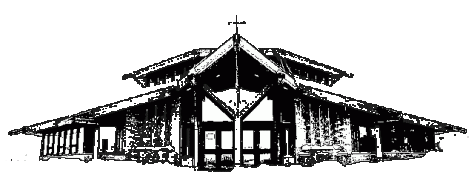 According to conventional wisdom, the man-bites-dog story of Oujé-Bougoumou should have been a front page affair — and yet only one national news agency, of which I am aware, reported this Cree community’s banning of Native spirituality within reserve limits.
According to conventional wisdom, the man-bites-dog story of Oujé-Bougoumou should have been a front page affair — and yet only one national news agency, of which I am aware, reported this Cree community’s banning of Native spirituality within reserve limits.
Yes, you’ve read that correctly. In Oujé-Bougoumou (known locally as Oujé) it is now forbidden to participate in “any form of Native Spirituality Practices,” a category which includes among other things sweat lodges, pow wows, and rain dances. The community decision was rendered October 2010 and reported last week by the Aboriginal Peoples Television Network. According to statements by members of Oujé-Bougoumou, the ban exercises “inherent rights of self-government and self-determination” and will prevent activities which “do not conform with the traditional practices and teachings of our Elders.” As you doubtless have anticipated, the resolution is not without its detractors, among them the community’s Anglican minister.
The offending sweat lodge which yielded this controversy was built by Redfern Mianscum in the back yard of his neighbour, Lana Wapachee, for reasons reported by a news source based in Eeyou Istchee (Cree territory). According to Mianscum
The reason why I built it was because I have seen a lot of drug and alcohol abuse and people going through different problems. I have been there in my own community and I have also faced these problems. So I wanted to take part in the healing process and help people in the community. This is what I do as a sweat-lodge carrier — I try to help people change their lives.
All fine and good, but it happens that Oujé-Bougoumou is home to a number of folks who, in the words of the resolution, “are Christian-faith oriented and have strong Christian values.” From this perspective, the sweat lodge is not a mere place of healing, but a way also to contact and communicate with the spirit world through shamanism, a decidedly unchristian activity. The resolution concludes that Oujé was founded “by Christian faith & values” and that the community “will continue to uphold its faith in, and guidance by, God.” An interesting flourish, and I suspect like the Founding Fathers motif which it plainly resembles, fraudulent. Then again, Oujé-Bougoumou (a planned community whose architect, Douglas Cardinal, literally is that) has yet to reach the age of twenty. This does rather place it in the Christian era.
In my collection of anecdotes I’ve a good store which I put under the heading Native Spirituality. Over the years I’ve been to many communities, my toes having experienced both a mari as well as ad mare. What an experience it is to participate in traditional ceremonies in a British Columbia city, a Northwestern Ontario village, a northern Inuit hamlet, and an eastern town. I remember well the first time I saw a traditional Elder conduct a Native ceremony which was addressed to Mary and which concluded with the Sign of the Cross and the trinitarian formula. I thought it surreal at the time, but a bit more travel changed that. Nowadays the likelihood of a “traditional native ceremony” being in fact a fadging of Christian theology and sweetgrass or Inuktitut can be ascertained by the tossing of a coin. Having been around, I could see there were only a few small parts of the country, at most I’d say four, where the work of assimilation and Christianization had been an undeniable failure. Everywhere else syncretism is now in an advanced stage, the work of banning Native spirituality thereby rendered superfluous.
From such stuff as this I must conclude that Oujé-Bougoumou is less extraordinary than we may suppose. Of course an explicit ban of a spiritual practice is a remarkable thing. But as I cross Turtle Island what I find over and again is that Canada’s policy of forced assimilation has worked and that many indigenous people have no objection to the many evident outcomes of this fact. In most Onkwehonweh communities, I expect the contemplation of a similar ban would incite community opposition, on the principle that banning traditional Native spirituality is not a Canadian value. Now think about that.

